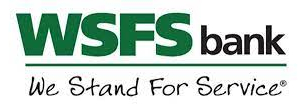3 Key Areas to Bring Small Business Expenses into Focus

When it comes to managing expenses for a small business owner or operator, every dollar spent contributes to cash flow and long-term profitability. Efficient expense management requires a keen eye on accounts payables, having proper budgeting and auditing processes in place, and understanding the risks associated when expenses become overwhelming — and how to prevent that from happening.
Here are a few initial key areas to focus on as you look to strengthen expense management practices for your small business.
Understand Your Risks
Having a deep understanding of the risks to your business’s continuity and profitability can help you avoid some common pitfalls that result from poor expense management. Beware of overspending on resources or using them inefficiently, accumulating debt to make up for poor expense and cash flow management, and missing out on savings opportunities by being so focused on recovering from expense mismanagement that you don’t see cost-saving measures or opportunities to negotiate better supplier terms.
The risks to your business should the above issues occur include:
- Low employee morale if it affects salaries, benefits, incentives and tools needed to do their jobs.
- Damage to your business’s reputation with customers, vendors, and your community.
- Difficulty in properly planning and forecasting.
- Limited ability to invest back into the business, including innovating or expanding.
To help mitigate these risks and their causes, your small business should implement and practice sound expense tracking, budgeting, and financial management practices.
Focus on These Four Critical Areas
A strong expense management plan starts with four key areas of focus that when implemented effectively can help keep your small business financially healthy and thriving.
- Budgeting: Create and adhere to a budget. By monitoring expenditures closely, businesses can allocate resources more efficiently, prevent overspending, and ensure funds are available for essential operations and growth initiatives. Audit your expenses on a monthly, quarterly, and annual basis to help shape even more efficient budgets.
- Cost Savings: Identify areas where cost-saving measures can be implemented. Analyzing spending patterns and trimming unnecessary expenses can lead to significant savings over time, contributing to improved profitability.
- Healthcare: Ensure healthcare costs are controlled and optimized through appropriate insurance plans, negotiation with healthcare providers, and wellness programs. This helps in providing essential benefits while managing costs.
- Supply Chain: Optimize procurement, inventory, and distribution costs. By streamlining these processes and negotiating favorable terms with suppliers, small businesses can maintain healthy profit margins while ensuring product availability.
Use Expense Management Systems and Tools
There are several expense management systems and tools, with some available at little to no cost. They can benefit your small business by providing data that can be analyzed for real time insights into spending patterns, allowing you to make strategic decisions based on actual financial data.
They also provide time savings for you and your staff, auditing and compliance controls, integration with other systems to add efficiency to your operations, among many advantages.
Overall, adopting an expense management tool or automated expense management system can lead to improved financial health, reduced costs, and increased efficiency for small businesses.
Small business expense management is integral for maintaining financial health, optimizing operations, and positioning your business for sustainable growth. It includes budgeting, cost control, employee benefits, and supply chain efficiency, all of which contribute to the overall success and sustainability of your small business.
Tap into resources available to you, like your banker and accountant, to identify ways to enhance your expense management practices.
________________

Jeremy Shackleford is Senior Vice President, Director of Small Business Sales for WSFS Bank. He joined WSFS in 2018 after 22 years working in banking and financial services, and was most recently Senior Vice President, Regional Manager for the bank’s Greater Philadelphia market, where he oversaw 15 retail office locations. He also served 10 years as a member of the U.S. Air Force (AFSOC).
.
Connect With Your Community
Subscribe for stories that matter!
"*" indicates required fields































